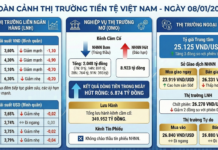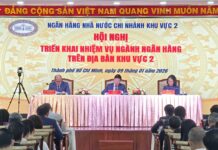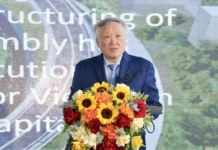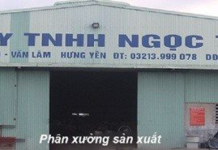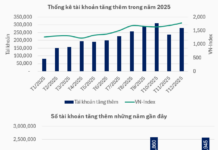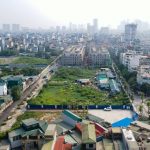At the workshop “New Impetus, Opportunities, and Challenges from the 2024 Land Law and Related Laws” held on August 15, real estate experts shared their thoughts on how the recently enacted Laws on Land, Housing, and Real Estate Trading would impact the respective sectors. They believed that the new laws, which came into force on August 1, would serve as a significant boost by providing a more streamlined legal framework, refining policies, and effectively addressing existing obstacles. This would ultimately unlock resources and foster economic development.
Mr. Nguyen Van Dinh, Vice President of the Vietnam Real Estate Association, highlighted a positive change in the 2024 Land Law. To address the issue of abandoned resettlement housing projects due to mismatches with the needs of the affected population, the law now mandates that resettlement must be completed before land retrieval decisions can be made.
Furthermore, the law stipulates that if a project investor fails to utilize the land within the extended deadline of 24 months, the state will revoke the land without providing compensation for the land, attached assets, or remaining investments.
Mr. Dinh emphasized that this regulation would put an end to land speculation and hoarding of prime commercial and service land plots by businesses, awaiting price increases or permission for conversion to residential purposes. As a result, it would optimize land resource utilization and contribute to a healthier real estate market.
Regarding the 2024 Housing Law, Mr. Dinh mentioned that it has been amended to expand the eligibility for social housing investment to include the Vietnam General Confederation of Labor and foreign-invested economic organizations. Additionally, the law broadens the range of beneficiaries who can purchase or rent social housing, thereby increasing the supply of social housing and supporting low-income earners in accessing affordable housing projects and preferential loan programs.

Mr. Nguyen Van Dinh, Vice President of the Vietnam Real Estate Association, shares his insights during the workshop.
Moving on to the new provisions in the Real Estate Trading Law, Mr. Dinh stated that they would foster a healthier, more transparent, and fair environment for real estate businesses, aligning with the government’s objectives.
Additionally, the law now mandates that real estate investors and businesses must make payments through banks and publicly disclose project information before commencing trading activities.
Mr. Dinh believed that these regulations would lay the foundation for building and digitizing a project database, making it accessible to all market participants. This would address information asymmetry and reduce risks for homebuyers.
To curb land speculation and its detrimental effects on the real estate market, the 2024 Real Estate Trading Law prohibits land subdivision and sale in 105 cities and towns. For the remaining areas, the provincial People’s Committees will decide on zones where investors can subdivide and transfer land to individuals for self-construction of houses.
“The new Laws on Land, Housing, and Real Estate Trading, along with their detailed decrees and guiding circulars, have essentially addressed the shortcomings of the previous laws,” said Mr. Dinh. “Although it is too early to assess their impact on the real estate market, I am confident that the innovative and progressive provisions in the new legal framework will propel the market towards safer, healthier, and more sustainable development.”
Echoing this sentiment, Mr. Phan Duc Hieu, a member of the Economic Committee of the National Assembly, acknowledged the government’s efforts in enacting the three laws, stating, “I appreciate the government’s efforts in promulgating the Laws on Land, Housing, and Real Estate Trading. We now have a comprehensive, relevant, and necessary legal framework.”
Mr. Hieu highlighted five key aspects of the 2024 Land Law: safeguarding the legitimate rights and interests of land users, enhancing transparency and fairness in land access, improving land use efficiency, refining land-related financial policies, and strengthening the effectiveness of state management.
The new law also encourages consensual land transfers and allows individuals without land certificates, but who meet the conditions for obtaining them, to participate in land transfers, capital contributions, leasing, and subleasing.
Regarding land access in real estate projects, Mr. Hieu emphasized the diverse nature of the real estate market, encompassing not only commercial housing but also social housing, official residences, resettlement housing, mixed-use developments, industrial parks, industrial clusters, and high-tech parks.
As the Laws on Land, Housing, and Real Estate Trading come into effect, businesses, investors, individuals, and local governments eagerly anticipate their practical implementation. The workshop, organized by Thuong Gia Magazine, brought together over 250 guests, including representatives from ministries, agencies, and renowned domestic and international experts, as well as leaders of real estate enterprises and financial institutions, to discuss the new laws’ potential impact.
Danang demolishes “waiting-to-collapse” apartment buildings
Three apartment complexes that were allocated for rent by the Da Nang City Hall since 2001 are now severely deteriorated and in need of relocation.
New law enacted, does Condotel have a “status”?
After experiencing numerous ups and downs in the market, the condotel segment seems to still lack a clear “identity” with the passing of the Real Estate Business Law 2023 and the Land Law 2024.






